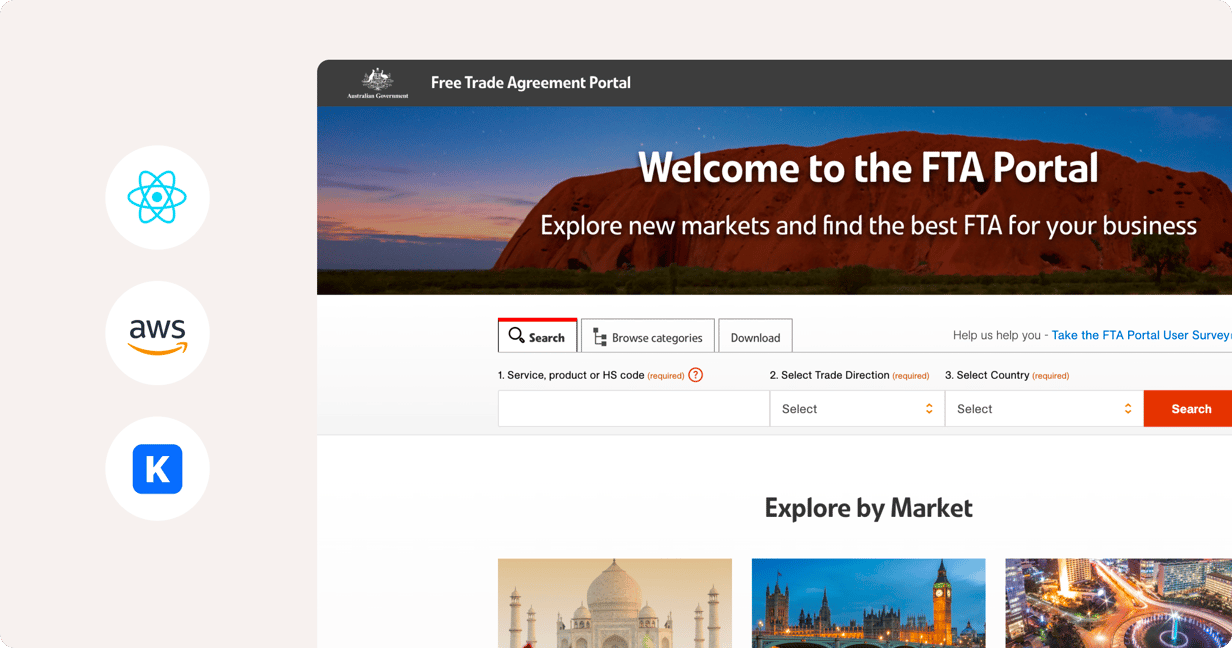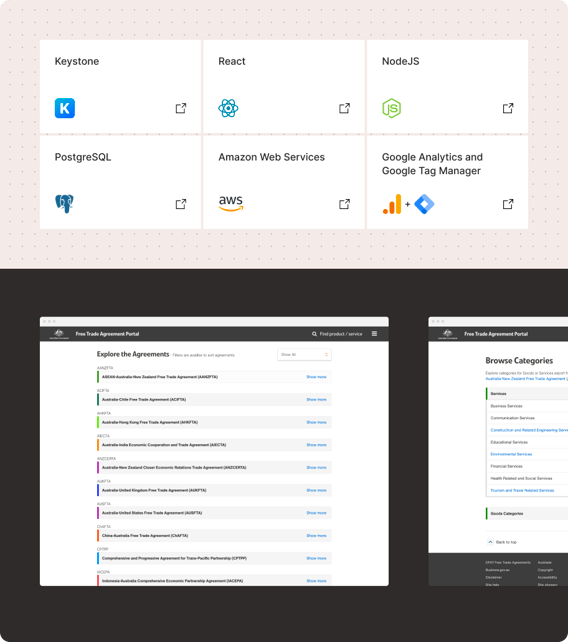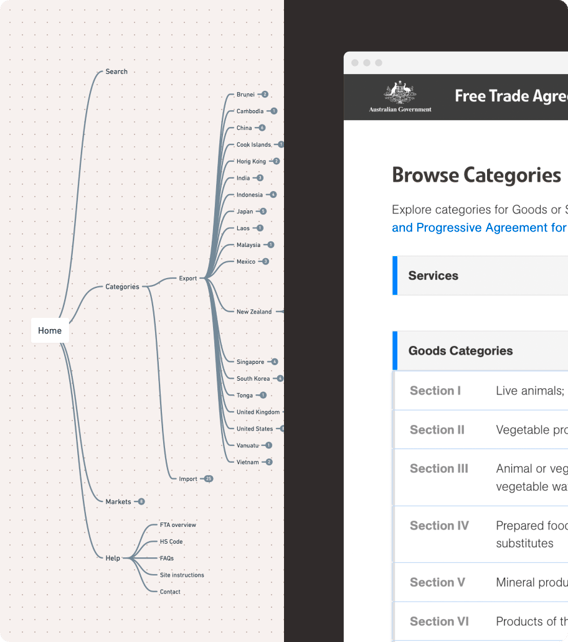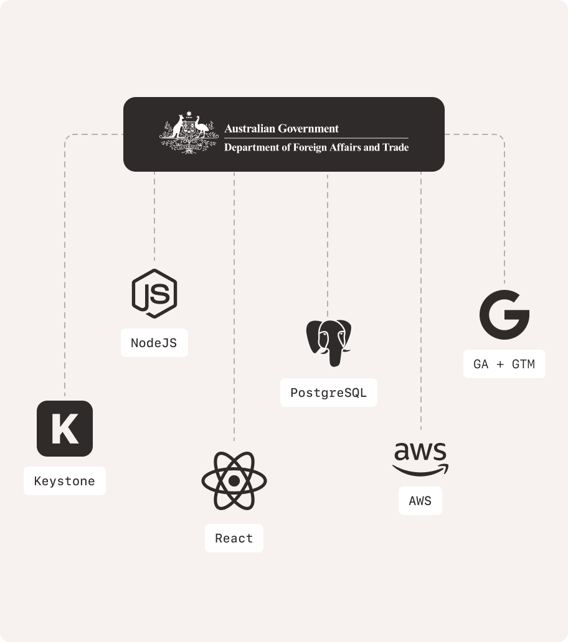We helped the Australian Government modernise its Free Trade Agreement Portal with a focus on security, reliability and performance.
In 2020 The Department of Foreign Affairs & Trade (DFAT) needed help overhauling their Free Trade Agreement Portal. We transformed what was a system based on manual processes and unstructured data into a fit-for-purpose solution focused on efficiency, self-service, and improved data integrity. We followed through with a 4 year SLA partnership to support and maintain the portal, exceeding their 99.9% uptime requirement throughout.


Highlights
- Replacement of a legacy manual, flat-file based, system with a secure-by-design decoupled CMS and front-end architecture founded on a shared data model, and with a focus on security and performance
- Complete support and management services for all critical and non-critical systems and infrastructure in line with a service-level agreement that included 99.9% uptime guarantees, and an incident management framework with clearly defined severity levels and resolution timelines
- Implementation and ongoing maintenance of multiple infrastructure environments and processes to support the portal’s security, system monitoring, code change request and content publishing workflow requirements
- Planned and on-demand support services in software design, software development, data transformation, and documentation management
A fully managed service for peace of mind
From 2020–2024 we maintained exclusive operational responsibility for all infrastructure, systems and services associated with DFAT’s Free Trade Agreement Portal. As part of our service-level agreement, we exceeded the 99.9% uptime requirement with >99.99% availability of all public-facing assets over the last 3 years of the engagement. We held responsibility for security and system-level monitoring and logging, data backups and disaster recovery, as well as partnering with third party vendors to enable and support penetration tests as requested by the department.


Extending and improving a legacy system is always a challenge, and Thinkmill showed time and time again they were up to it. Their ability to work within constraints and “cut the cloth to fit” was critical to our success and always deeply appreciated.


Darren Molineux
Assistant Director, FTA Trade Facilitation Section, Department of Foreign Affairs & Trade
Delivering on a wide range of data imports and exports requirements
DFAT‘s Free Trade Agreement portal has unique data management needs and processes driven by both organisational data analysis requirements and unreliable source data. We supported these requirements in a range of ways including: direct support generating ad-hoc data extracts through custom SQL queries, facilitating exports of database tables, and through the design and development of custom interfaces that support autonomous import/export activities by both internal and external users.


A scalable and performant decoupled architecture
While the legacy JSON-based flat-file system was inefficient in several ways, its static architecture did provide safeguards around security and scalability. We helped them transform their manual data processing and publishing workflows into a dynamic Keystone-managed content system that delivered structure and consistency without compromising security and scalability. The new CMS-powered system published static assets from the database to the public website making it possible for the site to scale independently from the CMS. DFAT staff were able to achieve more consistent results, without requiring help from developers for day-to-day content operations.


Related case studies
DAFF
We helped an Australian Government department build a Design System to support their digital transformation goals.
Rugby
We helped Rugby Australia rebuild their publishing infrastructure with Keystone to power the content of 3000 websites.
Vocal
We helped Vocal scale from a hunch to a multi-million user publishing platform.
We’d love to work with you
Have a chat with our team about how Thinkmill can support your software ambitions.
Contact us